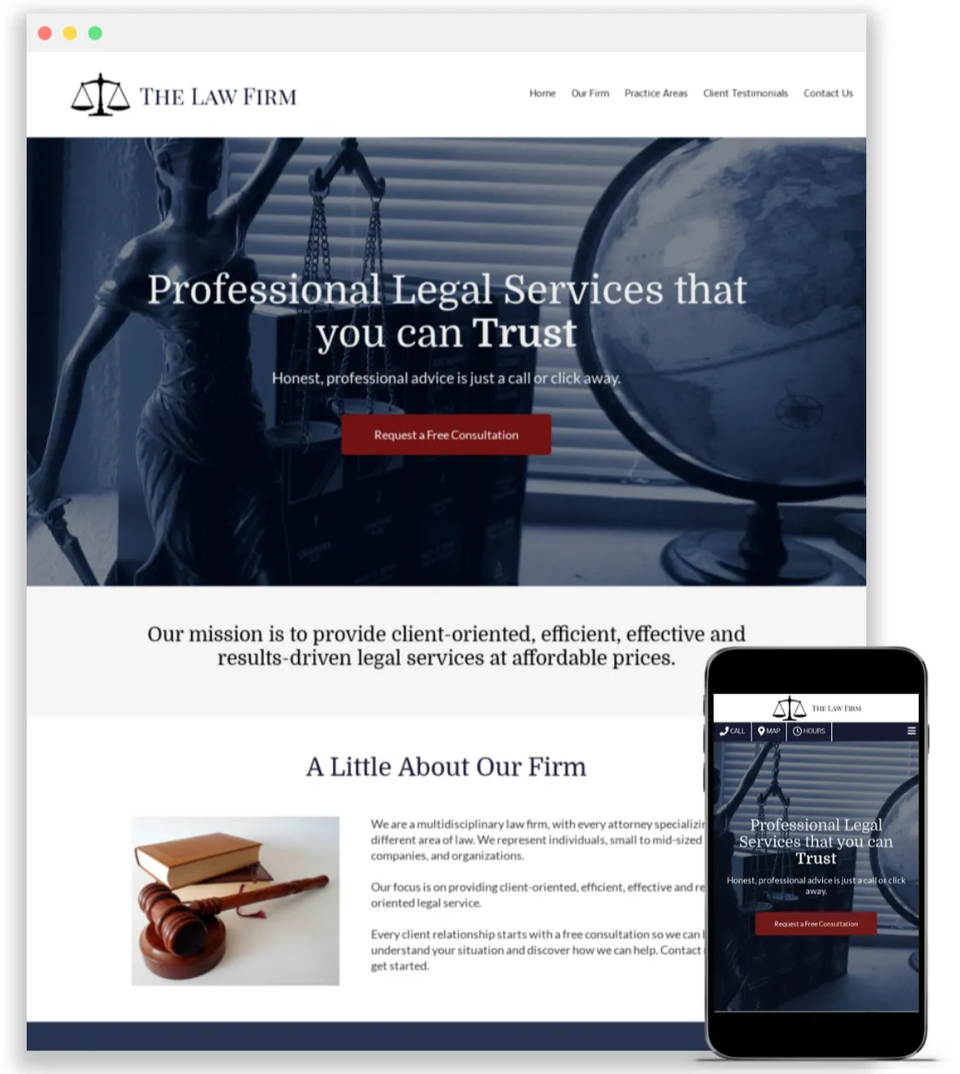Despite the abundant opportunities in the Chicago legal market, many attorneys find themselves frustrated with their digital marketing efforts. The challenges are real and multifaceted, requiring more than just a basic website to overcome.
Generic National Marketing Doesn't Work Locally
One of the biggest mistakes Chicago law firms make is hiring marketing companies that apply the same strategies from New York to Los Angeles without understanding what makes Chicago unique. These cookie-cutter approaches fail to capture the essence of practicing law in the Windy City, where neighborhood dynamics, local bar association relationships, and understanding of Illinois-specific legal procedures matter tremendously.
Consider how a generic marketing message about "experienced attorneys" falls flat compared to content that demonstrates understanding of Cook County's court system, relationships with local judges, or involvement with the Chicago Bar Association.
Potential clients in Jefferson Park have different concerns than those in the Loop, and your marketing must reflect this understanding. Generic content about "serving your legal needs" doesn't resonate like specific information about handling cases at the Daley Center or understanding the nuances of Chicago's administrative hearings.
The problem extends beyond just content to technical implementation. National marketing companies often don't understand the importance of local SEO factors specific to Chicago's geography. They might optimize for "Chicago" broadly but miss opportunities to rank for "North Shore estate planning attorney" or "Back of the Yards criminal defense lawyer"—searches that represent ready-to-hire clients looking for attorneys in their specific area. This lack of local focus means even well-funded marketing campaigns fail to generate the leads Chicago attorneys need.
Competing Against Big Firms with Huge Budgets
The David versus Goliath challenge is particularly acute in Chicago's legal market. Large Loop firms with dedicated marketing departments and six-figure monthly budgets dominate generic search terms, making it seem impossible for smaller firms to compete. However, this challenge often stems from trying to fight on the wrong battlefield rather than leveraging the advantages smaller firms inherently possess.
Big firms' marketing often suffers from its own size—generic, impersonal messaging designed to appeal to everyone while connecting with no one. Their websites, while professionally designed, frequently lack the personal touch and community connection that smaller firms can offer.
By focusing on specific practice areas, neighborhoods, or client types, smaller firms can dominate niches that larger firms overlook or underserve.
A solo practitioner focusing on DUI defense in DuPage County can outrank the biggest Chicago firms for those specific searches by demonstrating deep local knowledge and commitment.
The key is understanding that you don't need to outspend big firms—you need to out-position them. While they cast wide nets with expensive broad-match PPC campaigns, you can build authority in specific areas through targeted content, local relationship building, and authentic community involvement.
Our approach at Attorney Web Design | Chicago focuses on these asymmetric advantages, helping smaller firms punch above their weight class through strategic positioning rather than budget competition.
Time & Resource Constraints
Perhaps the most frustrating challenge for Chicago attorneys is the time paradox: you need marketing to grow your practice, but you're too busy serving current clients to focus on marketing. With billable hour pressures, court appearances, and client demands, finding time to write blog posts, manage social media, or optimize your website feels impossible. This challenge is compounded by the rapid pace of digital marketing evolution, what worked last year might be obsolete today.
Many attorneys try to solve this by hiring junior staff or delegating to administrative assistants, but without proper expertise, these efforts often produce mediocre results that waste both time and money. Others attempt DIY solutions, spending weekends trying to understand SEO or design websites, only to produce amateurish results that actually harm their professional image. The opportunity cost is enormous—every hour spent struggling with marketing is an hour not spent on billable work or business development.
The financial constraints add another layer of complexity. Traditional marketing agencies demand large retainers and long-term contracts, making it risky for smaller firms to invest.
You might spend thousands on a new website only to discover it doesn't generate leads, or invest in SEO services that take months to show results—if they work at all. This creates a vicious cycle where firms most in need of marketing to grow can least afford to invest in it, keeping them trapped at their current size while competitors pull ahead.






